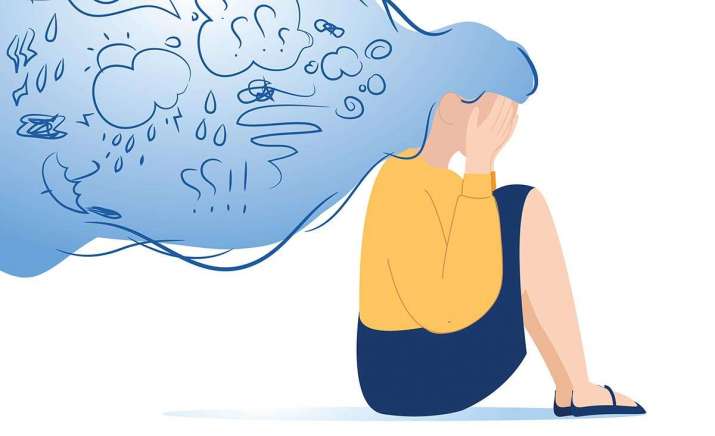FEATURES|THEMES|Commentary
Buddhistdoor View: We Can Be Heroes – Buddhism’s Joyful Response to the Pandemic

Just when many of us thought the global coronavirus pandemic couldn’t become any worse, it has. Recent numbers of confirmed cases are spiking in much of the world and the coming winter months in the northern hemisphere will bring weather unsuitable for outdoor meetings and a series of public holidays during which family and friends traditionally gather: Thanksgiving in the United States, Hanukah, Christmas, New Year’s Day, and then the Lunar New Year in mid-February next year.
This year, billions of people will face the real possibility of catching COVID-19 from a family member—or worse, infecting them—or spending the holiday season alone or in exceptionally limited groups. The US Centers for Disease Control and Prevention (CDC) has urged Americans to stay home next week ahead of the Thanksgiving holiday, which is usually one of the busiest travel periods of the year.
“The safest way to celebrate Thanksgiving this year is at home with members of your household,” advised Erin Sauber-Schatz, who leads the CDC’s community intervention and critical population task force. (The New York Times)
 From nysut.org
From nysut.orgAs we look to the coming weeks and months, we can prepare by taking three important steps: first, retreat and isolation; second, contemplation and acceptance; and third, heroic and joyful effort.
The Buddhist teachings on retreat and isolation are clear and unambiguous. The harried world of everyday activity is, for most of us, a profound distraction from our spiritual lives. As stress piles up, our connection to the deep, calm truth of the Dharma can become thin at best—sometimes feeling completely lost. With any luck, our practice is sufficiently deeply established to find moments to simply bring awareness to our breathing, to chant a nembutsu, or to otherwise strengthen our bonds with the Dharma. And if the coronavirus pandemic has taken away any of our regular activities, we can look at it as giving us opportunities to re-evaluate and engage with our practices. While many of us have little choice about increasing isolation, we do have a choice about how we deal with it: do we “doom scroll” through social media, or do we “joy sit” on our meditation cushion?
Contemplation and acceptance follow naturally enough when we change our relationship with isolation. In our previous Buddhistdoor View, we addressed the winter of uncertainty ahead of us and the fact that uncertainty is actually nothing new to humanity.* In fact, change and impermanence make up one of the Buddha’s trilakshana, or three marks of existence. Separation from what we love and enjoy causes suffering, as does not getting what we want. If any of us were uncertain about these truths taught by the Buddha some 2,500 years ago, the year 2020 should remove all doubt. Instability and uncertainty are the basis of samsaric reality. We build our own illusions of stability out of habit, only to see them crumble again and again.
Our third step is one often overlooked among contemporary Buddhists: that of joyful, engaged effort (Skt: virya). This week a nurse from a rural hospital in the US was interviewed about her harrowing experiences in recent few weeks. Her voice trembling at times, she said that people talk about 2020 as being the “year of the nurse” or that “nurses are heroes,” but in reality we can all be heroes: wear a mask, socially distance, wash your hands, stay home when you can. These seemingly simple steps could profoundly flatten the curve of transmission, freeing up much-needed hospital space and supplies for already sick patients fighting for their lives.
We can all be heroes. In doing so we keep ourselves safe, we protect our friends and loved ones, and we can even protect strangers near and far. This is loving-kindness in its most basic form enacted in the world. How wonderful to have such an opportunity for practice! The odd juxtaposition of profound, heroic potential with the reality that we just need to sit on our couches was illustrated beautifully this month in a German TV advertisement:
With humor, the advertisement points to the deep joy we can find in our efforts. As the Buddhist psychologist and teacher Christina Feldman explains:
Correctly understood, effort is an invitation to insight. The kind of effort we make in our practice and in our lives is communicating something. At times it’s communicating the mind state of the moment: doubt, fear, craving, or aversion. Sometimes the kind of effort we’re making is communicating a more historical belief system or self image that dominates our lives. However our relationship to effort manifests, we are invited to listen well to these communications.
I think we need to allow the practice itself to be the practice of freedom, to be the practice of peace, to be the practice of compassion, rather than feel that all of that somehow comes as a result of something else. It doesn’t make sense, does it, that we would strive or struggle and expect that somehow the fruit is going to be peace? It doesn’t add up that we’re going to battle with ourselves and beat ourselves up and chip away at the rock face, and that the fruit of such activity is going to be joy. So let’s find a way to make the quality of effort itself the goal of practice.
Let’s make our effort joyful.
When we cultivate not just wise and skillful effort, but also joyful effort, we discover what I think Joseph Campbell described as the rapture of being fully alive. (Barre Center for Buddhist Studies)
This is an ingredient that has been missing from many of the political and medical responses to the pandemic so far, and perhaps for good reason—this is a very serious problem. But, as the German advertisement demonstrates, adding a little fun to our efforts, even in these dire times, can encourage us through what feels like drudgery to so many.
Richard Mercer, a visiting instructor of English at the University of Richmond, writes of a western corollary to this joyful bodhisattva activity:
William James, the American psychologist and philosopher, describes a similar state of mind and experience which causes “a self hitherto divided, and consciously wrong, inferior, and unhappy” to experience a turning around or tipping over of these negative qualities. There is great happiness, a sense of wellness and health. Mysteries are cleared up, replaced by a sense of truth beyond words. The world is fresh and new. (University of Richmond)
The world may not feel fresh and new when viewed through the lenses of what we’ve lost and what we want to happen. But when viewed as an opportunity to take part in a profound, indeed historic, challenge to humanity and to do our part to save lives, the struggles ahead take on a new appearance. We become not victims in a global disaster, but heroes alongside billions of others working to overcome a common enemy.
* Buddhistdoor View: The Winter of Uncertainty – COVID-19 and the World (Buddhistdoor Global)
See more
C.D.C. Pleads With Americans to Stay Home on Thanksgiving (The New York Times)
Making a Joyful Effort (Barre Center for Buddhist Studies)
The Effortless Benevolence of Heroic Figures in Buddhist Traditions (University of Richmond)
Related features from Buddhistdoor Global
Building a Climate Crisis Toolkit with Buddhist Wisdom
Northeasterly Winds and Balanced Effort
Right Effort in Systems Design
Concerning Right Effort














